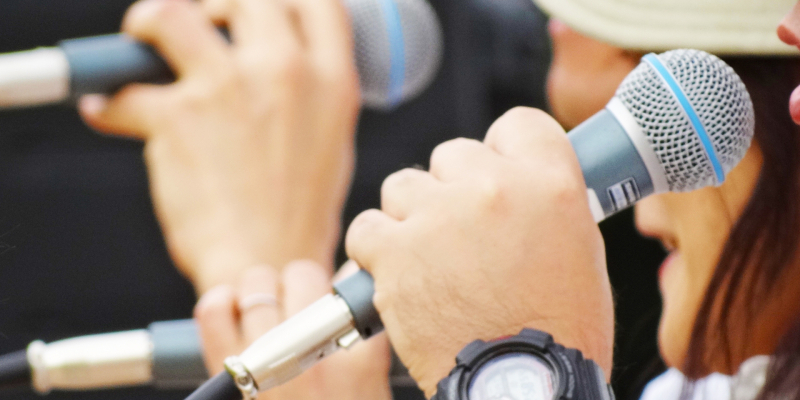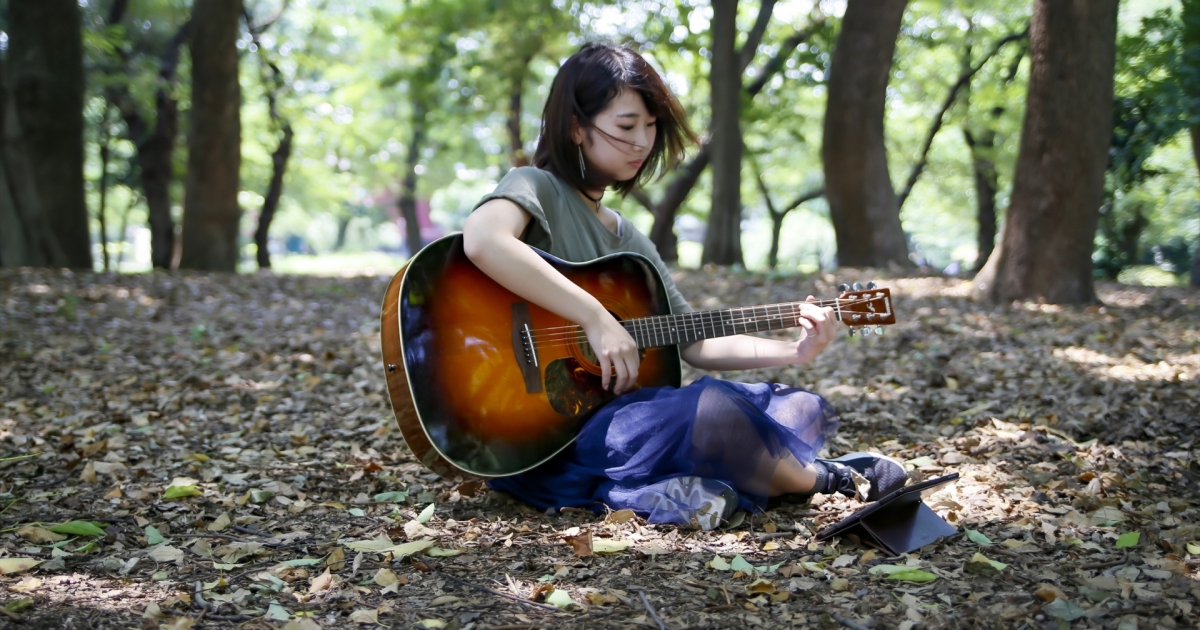Are you interested in Japanese music? Do you think it’s not familiar to you? Either way, why don’t you start off with English covers of J-POP songs?
In this article, I’m going to share four best Japanese songs translated to English by the cover artists. I guarantee their music truly depict the originals and you’ll feel how beautiful and soothing Japanese music is by the melodies and lyrics.
Ito (Tapestry)
“Ito 糸” is by a Japanese singer-songwriter Nakajima Miyuki 中島 みゆき. Released in 1998, this song stands the test of time being a popular karaoke song. It is used as the theme song for a famous Japanese TV drama.
Ito discusses how deep life really is by describing a couple who thinks they are meant to be together. This song has resonated deeply with not only the Japanese but also people in other countries. It is covered by many artists inside and outside Japan paying tribute to the legendary singer.
This cover song is by an American singer-songwriter Rebecca Watanabe レベッカ渡辺, who covers many JPOP songs in English. She’s been interested in Japanese and learning it on her own since she was a student. She seems to be active in music in Japan (as of 2020).
Nakajima Miyuki has natural sense for creating music, so it seems difficult to translate her unique lyrics to English. For example, in the lyrics, she likens each person to a thread weaved into a tapestry which can warm someone important to them. Rebecca, however, faithfully translates it and succeed in leaving the beauty of Japanese language.
Rebecca has over 400 videos uploaded on YouTube including English-language covers and her original songs. Check them out and I bet you’ll find your favorite!
Flying Get
“Flying Get フライングゲット” is sung by a popular Japanese idle girl group AKB48, and is one of the all-time best-selling songs in Japan. It was No.1 on Japanese music charts, becoming the first single in the history to sell over one million copies on its first day of release in 2011.
This song is about a man who is in love with a girl and trying to catch her earlier than anybody. The phrase “Flying Get” is Japanese internet slang meaning to obtain items such as books before the date they are on sale.
The AKB48 group consist of girls who perform in front of their fans on a daily basis with the concept of “idols you can meet”. The members are chosen by general elections to sing their singles.
The cover artist is Jille (Gille) ジル. She is a Japanese artist who sings JPOP in English. She uploaded this cover song in 2012 and it got over 1.8 million views in a month. Since she re-started her music career after recovering from illness, she’s been always in public, attracting attention to herself with her powerful voice and performance.
Ora Tokyo Sa Iguda
“Ora Tokyo Sa Iguda おら東京さ行ぐだ” is made by a Japanese singer-songwriter Yoshi Ikuzo 吉 幾三. This song stands out in his music career for its unique combination of rap music and his native dialect spoken in a part of Northeast Japan.
Released in 1984, Ora Tokyo Sa Iguda was considered as an unprecedented song because the genre of rap music was not common at that time in Japan. This song was an unique challenge in his career. He was on a decline as an “Enka 演歌” (popular traditional Japanese music) singer when the single was released, and the song pulled him back from a brink.
This song is about the story of a man who declares that he will leave his hometown in the countryside for Tokyo. The title means “I’m going to Tokyo”.
The funny lyrics might not easy to understand because the dialect called “Tsugaru-Ben 津軽弁” is quite different from standard Japanese. Even most Japanese have trouble understanding it. When you find how much fun the lyrics is, you might’ve acquired Japanese skills as much as the natives have.
The cover artists Kasutoro Satoshi カストロさとし is a multi-career artist: musician, IT interpreter, youtuber, and translator. He sings JPOP in English with a wide variety from the latest songs to classic hits.
Haruyo koi
“Haruyo Koi 春よ、来い” is by a songwriter and lyricist Matsutoya Yumi 松任谷 由美. This song is her 26th single and third best selling of all. Released in 1994, people have been touched by its beautiful melody and lyrics. It is also popular as a graduation song.
Haru literally means “spring” in Japanese. It is a time of goodbyes as well as a time to make new people, and Haruyo Koi is about a person who is looking forward to the season to meet her(his) precious again. The lyrics is sad but upbeat, and makes people think Japanese language is beautiful.
Noteworthy is that this song is used in Japanese and music textbooks at school in Japan because of its beautiful expression in the lyrics. This song could be your perfect practice tool to learn the language.
The cover version is by Hayley Westenra, as we all know, a world renowned New Zealand singer-songwriter. What made he famous in Japan is her version of “Amazing Grace” used as the theme song of a popular Japanese drama in 2003. The song is contained in “Hayley Sings Japanese Songs”, which has traditional and popular contemporary Japanese songs interpreted by Westenra herself.
Here’s the original by Matsutoya Yomi.
Lyrics
淡き光立つ 俄雨 Awaki hikari tatsu niwaka ame
いとし面影の沈丁花 Itoshi omokage no jinchouge
溢るる涙の蕾から Ahururu namida no tsubomi kara
ひとつ ひとつ香り始める Hitotsu hitotsu kaori hajimeruそれは それは 空を越えて Sore wa sore wa sora wo koete
やがて やがて 迎えに来る Yagate yagate mukae ni kuru春よ 遠き春よ 瞼閉じればそこに Haru yo tooki haru yo mabuta tojireba soko ni
愛をくれし君の なつかしき声がする Ai wo kureshi kimi no natsukashiki koe ga suru君に預けし 我が心は Kimi ni azukeshi wa ga kokoro wa
今でも返事を待っています Ima demo henji wo matteimasu
どれほど月日が流れても Dore hodo tsukihi ga nagaretemo
ずっと ずっと待っています Zutto zutto matteimasuそれは それは 明日を超えて Sore wa sore wa asu wo koete
いつか いつか きっと届く Itsuka itsuka kitto todoku春よ まだ見ぬ春 迷い立ち止まるとき Haru yo mada minu haru mayoi tachidomaru toki
夢をくれし君の 眼差しが肩を抱く Yume wo kureshi kimi no manazashi ga kata wo daku夢よ 浅き夢よ 私はここにいます Yume yo asaki yume yo watashi wa koko ni imasu
君を想いながら ひとり歩いています Kimi wo omoi nagara hitori aruiteimasu
流るる雨のごとく 流るる花のごとく Nagaruru ame no gotoku nagaruru hana no gotoku春よ 遠き春よ 瞼閉じればそこに Haru yo tooki haru yo mabuta tojireba soko ni
愛をくれし君の なつかしき声がする Ai wo kureshi kimi no natsukashiki koe ga suru春よ まだ見ぬ春 迷い立ち止まるとき Haru yo mada minu haru mayoi tachidomaru toki
夢をくれし君の 眼差しが肩を抱く Yume wo kureshi kimi no manazashi ga kata wo daku春よ 遠き春よ 瞼閉じればそこに Haru yo tooki haru yo mabuta tojireba soko ni
愛をくれし君の なつかしき声がする Ai wo kureshi kimi no natsukashiki koe ga suru春よ まだ見ぬ春 迷い立ち止まるとき Haru yo mada minu haru mayoi tachidomaru toki
夢をくれし君の 眼差しが肩を抱く Yume wo kureshi kimi no manazashi ga kata wo daku
Conclusion

Japanese music expresses its culture in various aspects and naturally eases you into learning the language.
The artists shared above have a wide variety of covers. I recommend you go check their other songs on YouTube. You’ll definitely find your favorites!
Next time I’ll share another genre of Japanese music. It can be the anime songs or Enka!




Comments